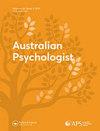一项评估两阶段方法治疗有复杂创伤史的妇女的第一阶段的试点研究的结果
IF 2
4区 心理学
Q2 PSYCHOLOGY, MULTIDISCIPLINARY
引用次数: 0
摘要
摘要目的尽管很少有研究评估基于阶段的干预措施治疗复杂创伤症状的有效性,但这些方法已被专家认可为一线干预措施。本研究的目的是评估妇女创伤恢复计划的第一阶段,这是一项针对经历过复杂创伤的妇女的基于阶段的干预措施。方法对11名参与者的创伤后应激、抑郁、焦虑和压力(基线和第10周)进行定量评估。六名妇女还参加了关于她们在该方案中的经历的定性访谈。描述性统计和解释性现象学分析分别用于分析定量和定性数据。结果在基线时可能患有创伤后应激障碍的9名参与者中,有4名在第10周时无症状。从访谈数据中产生了三个上级主题:(1)赋权:第一阶段的经历,(2)恢复:一个持续的过程,以及(3)“嘿,我是人”:通过共享经验建立联系。结论该项目的第一阶段在症状改善方面显示出了有希望的结果。此外,与会者认为这是一种赋权体验。团体模式使妇女能够建立联系,使她们的经历得到验证和正常化。未来需要对基于阶段的干预措施进行更大、更有力的样本研究。要点关于这个主题已经知道的内容:(1)对于有复杂创伤史的个体,基于阶段的方法是一种推荐的治疗选择。尽管如此,很少有研究对经历过复杂创伤的女性进行此类治疗。(2) 基于阶段的方法假设,经历过复杂创伤的个人可能会从一段时间的安全和稳定中受益,以发展所需的应对技能,参与创伤记忆处理。(3) 利用澳大利亚医疗保险回扣计划,将团体阶段和个人阶段相结合,可以减轻客户的成本负担,并使客户能够体验到团体和个人模式独有的福利。本主题补充:(1)本文介绍了澳大利亚首次发现的基于阶段的方法治疗复杂创伤妇女的初始阶段的结果。(2) 以小组形式实施的妇女创伤恢复计划的第一阶段与大多数参与者的心理健康症状减少有关,并被视为促进人际关系的赋权体验。(3) 对于有复杂创伤史的女性来说,将群体干预作为基于阶段的方法的第一阶段可能是一种可接受、有效且具有成本效益的选择。本文章由计算机程序翻译,如有差异,请以英文原文为准。
Outcomes from a pilot study to evaluate Phase 1 of a two-phase approach to treat women with complex trauma histories
ABSTRACT Objective Despite few studies assessing the effectiveness of phase-based interventions for treating complex trauma symptoms, such approaches have been endorsed by experts as a first-line intervention. The aim of this study was to evaluate Phase 1 of the Women’s Trauma Recovery Program, a phase-based intervention for women who have experienced complex trauma. Methods Quantitative assessments of posttraumatic stress, depression, anxiety and stress (baseline and Week 10) are reported for 11 participants. Six women also participated in qualitative interviews regarding their experience of the program. Descriptive statistics and interpretive phenomenological analysis were used to analyse quantitative and qualitative data, respectively. Results Four of nine participants with probable PTSD at baseline were asymptomatic at Week 10. Three superordinate themes were generated from the interview data: (1) Empowerment: the experience in Phase 1, (2) Recovery: an ongoing process, and (3) “Hey, I’m human”: connection through shared experience. Conclusion Phase 1 of the program demonstrated promising findings in terms of symptom improvement. Furthermore, participants perceived it as an empowering experience. The group modality enabled women to create connections that validated and normalised their experiences. Future studies of phase-based interventions with larger, well-powered samples are needed. Key Points What is already known about this topic: (1) Phase-based approaches are a recommended treatment option for individuals with complex trauma histories. Despite this, little research has examined such treatments for women who have experienced complex trauma. (2) Phase-based approaches assume that individuals who have experienced complex trauma may benefit from a period of safety and stabilisation, to develop the required coping skills to engage in trauma memory processing. (3) Capitalising on the Australian Medicare Rebate Scheme, combining a group phase and individual phase may reduce the cost burden for clients and enable clients to experience benefits unique to group and individual modalities. What this topic adds: (1) This paper presents Australian-first findings regarding the outcomes of the initial phase of a phase-based approach to treat women with complex trauma. (2) Phase 1 of the Women’s Trauma Recovery Program, delivered in a group format, was associated with decreases in mental health symptoms for most participants and was perceived as empowering experience that facilitated interpersonal connections. (3) Using a group intervention as phase 1 of phase-based approaches may be an acceptable, effective, and cost-effective option for women with complex trauma histories.
求助全文
通过发布文献求助,成功后即可免费获取论文全文。
去求助
来源期刊

Australian Psychologist
PSYCHOLOGY, MULTIDISCIPLINARY-
CiteScore
3.70
自引率
5.30%
发文量
32
期刊介绍:
The Australian Psychologist is the official applied practice and public policy journal of the Australian Psychological Society. As such, the journal solicits articles covering current issues in psychology, the science and practice of psychology, and psychology"s contribution to public policy, with particular emphasis on the Australian context. Periodically, Australian Psychological Society documents, including but not limited to, position papers, reports of the Society, ethics information, surveys of the membership, announcements, and selected award addresses may appear in the journal.
 求助内容:
求助内容: 应助结果提醒方式:
应助结果提醒方式:


